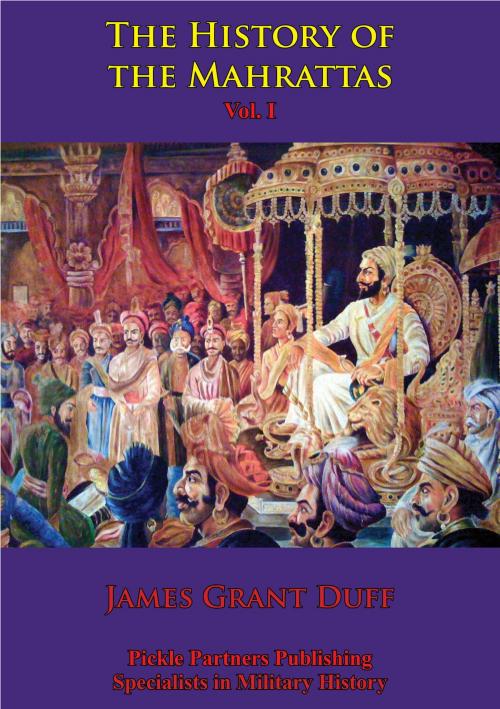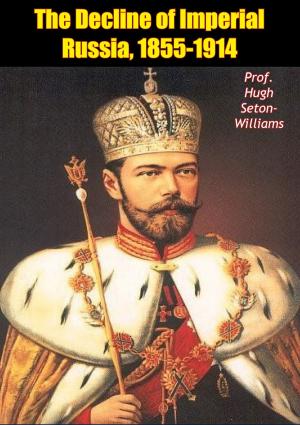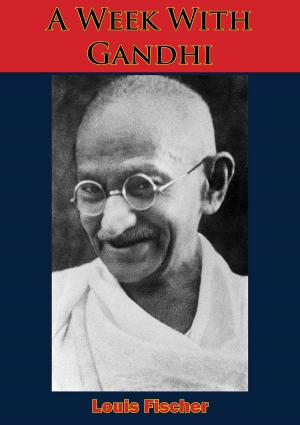The History Of The Mahrattas - Vol I
Nonfiction, History, Asian, India, Religion & Spirituality, Eastern Religions, Hinduism, Health & Well Being, Fitness, Yoga| Author: | James Grant Duff | ISBN: | 9781782892335 |
| Publisher: | Normanby Press | Publication: | June 13, 2014 |
| Imprint: | Normanby Press | Language: | English |
| Author: | James Grant Duff |
| ISBN: | 9781782892335 |
| Publisher: | Normanby Press |
| Publication: | June 13, 2014 |
| Imprint: | Normanby Press |
| Language: | English |
The power of India reached its pre-British Raj height under the Maratha Empire or the Maratha Confederacy which was an Indian imperial power that existed from 1674 to 1818. At its peak, the empire covered much of India, encompassing a territory of over 2.8 million km². The Marathas are credited for ending the Mughal rule in India.
The Marathas were a yeoman warrior group from the western Deccan that rose to prominence during the rule of the Adil Shahi dynasty and Ahmadnagar Sultanate. The empire was founded by Shivaji Bhosle, who formally crowned himself Chhatrapati ("Emperor") with Raigad as his capital in 1674, and successfully fought against the Mughal Empire. The Maratha Empire waged war for 27 years with the Mughals from 1681 to 1707, which became the longest war in the history of India. Shivaji, pioneered "Shiva sutra" or Ganimi Kava (guerrilla tactics), which leveraged strategic factors like demographics, speed, surprise and focused attack to defeat his bigger and more powerful enemies. After the death of the Mughal Emperor Aurangzeb, the empire expanded greatly under the rule of the Peshwas. The empire at its peak stretched from Tamil Nadu in the south, to Peshawar (modern-day Pakistan) on the Afghanistan border in the north, and Bengal and Andaman Islands in east. In 1761, the Maratha army lost the Third Battle of Panipat to Abdali’s Afghan Durrani Empire, which halted their imperial expansion. Ten years after Panipat, young Madhavrao Peshwa reinstated the Maratha authority over North India. In a bid to effectively manage the large empire, he gave semi-autonomy to the strongest of the knights, which created a confederacy of Maratha states. In 1775, the British East India Company intervened in a succession struggle in Pune, which became the First Anglo-Maratha War. Marathas remained the preeminent power in India until their defeat in the Second and Third Anglo-Maratha wars (1805–1818), which left the British East India Company in control of most of India.
The power of India reached its pre-British Raj height under the Maratha Empire or the Maratha Confederacy which was an Indian imperial power that existed from 1674 to 1818. At its peak, the empire covered much of India, encompassing a territory of over 2.8 million km². The Marathas are credited for ending the Mughal rule in India.
The Marathas were a yeoman warrior group from the western Deccan that rose to prominence during the rule of the Adil Shahi dynasty and Ahmadnagar Sultanate. The empire was founded by Shivaji Bhosle, who formally crowned himself Chhatrapati ("Emperor") with Raigad as his capital in 1674, and successfully fought against the Mughal Empire. The Maratha Empire waged war for 27 years with the Mughals from 1681 to 1707, which became the longest war in the history of India. Shivaji, pioneered "Shiva sutra" or Ganimi Kava (guerrilla tactics), which leveraged strategic factors like demographics, speed, surprise and focused attack to defeat his bigger and more powerful enemies. After the death of the Mughal Emperor Aurangzeb, the empire expanded greatly under the rule of the Peshwas. The empire at its peak stretched from Tamil Nadu in the south, to Peshawar (modern-day Pakistan) on the Afghanistan border in the north, and Bengal and Andaman Islands in east. In 1761, the Maratha army lost the Third Battle of Panipat to Abdali’s Afghan Durrani Empire, which halted their imperial expansion. Ten years after Panipat, young Madhavrao Peshwa reinstated the Maratha authority over North India. In a bid to effectively manage the large empire, he gave semi-autonomy to the strongest of the knights, which created a confederacy of Maratha states. In 1775, the British East India Company intervened in a succession struggle in Pune, which became the First Anglo-Maratha War. Marathas remained the preeminent power in India until their defeat in the Second and Third Anglo-Maratha wars (1805–1818), which left the British East India Company in control of most of India.





![Cover of the book The 1968 Tet Offensive Battles Of Quang Tri City And Hue [Illustrated Edition] by James Grant Duff](https://www.kuoky.com/images/2014/august/300x300/9781782893615-fuU5_300x.jpg)
![Cover of the book The Invasion of the Crimea: Vol. VI [Sixth Edition] by James Grant Duff](https://www.kuoky.com/images/2017/january/300x300/9781787203488-tMXY_300x.jpg)


![Cover of the book Letters Written During The Indian Mutiny [Illustrated Edition] by James Grant Duff](https://www.kuoky.com/images/2016/january/300x300/9781786257970-ysLN_300x.jpg)


![Cover of the book Air Base Defense In The Republic Of Vietnam 1961-1973 [Illustrated Edition] by James Grant Duff](https://www.kuoky.com/images/2014/august/300x300/9781782895916-YQky_300x.jpg)


